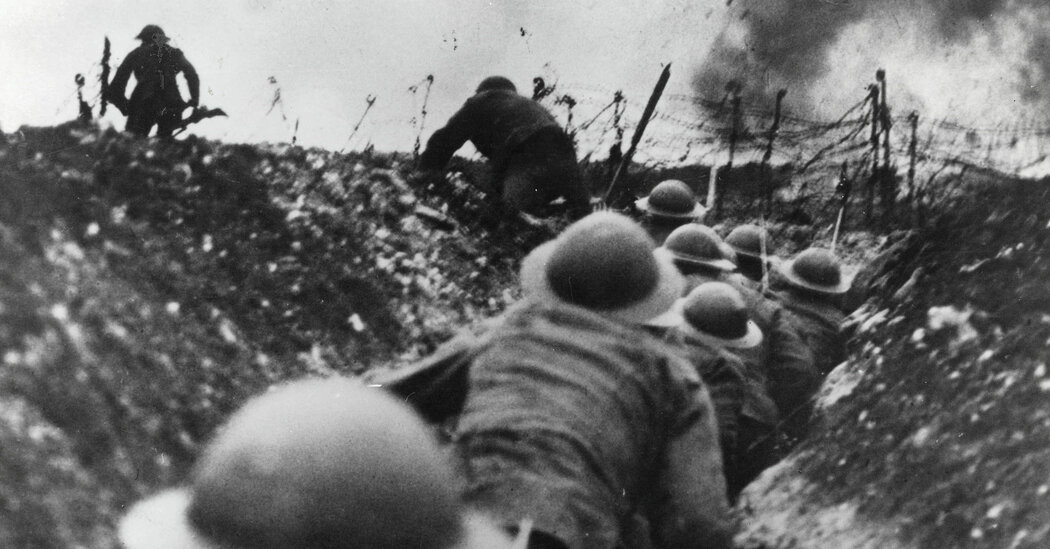It now seems distressingly neglected. “The Great War and Modern Memory” is worth a revisit, and a new generation of readers. I would slide it forward, like a runaway checkers stone, at least 30 places on the Modern Library’s list, on writerly merit alone. It is filled with close and tragic perceptions, yet Fussell’s sentences crunch like tanks snapping woodland into twigs.
I first read it when young, and it is one of two books — Jessica Mitford’s “The American Way of Death” was the other — that changed my idea of what nonfiction could be and ruined me for most other writers. If Fussell could write this intrepidly about war, and Mitford about death, topics that have lent themselves to more lugubrious prose than almost any others, I thought, why couldn’t every nonfiction book — histories, biographies, memoirs — blend fact-finding with such high-stepping intellection, with such loathing for the bogus and with such literacy, glee and fury?
“Every war is ironic because every war is worse than expected,” Fussell writes. “Every war constitutes an irony of situation because its means are so melodramatically disproportionate to its presumed ends.” He stretches mortal ironies until they shiver.
Robert Stone called the Vietnam War “a mistake 10,000 miles long.” Fussell reminds us that the trenches dug by both sides during World War I stretched to about 25,000 miles, “equal to a trench sufficient to circle the earth.” These furnaces of experience were 25,000 miles of muck and dung and blood.
Those back home, in the early years of the war, were assured that trenches were clean, well-lit and almost jolly places. Soldiers’ subscriptions to newspapers, and to The Tatler and The Spectator, were not interrupted. The front lines were achingly close to London. An officer might breakfast in the trenches and, that evening, dine across the Channel at his club.
